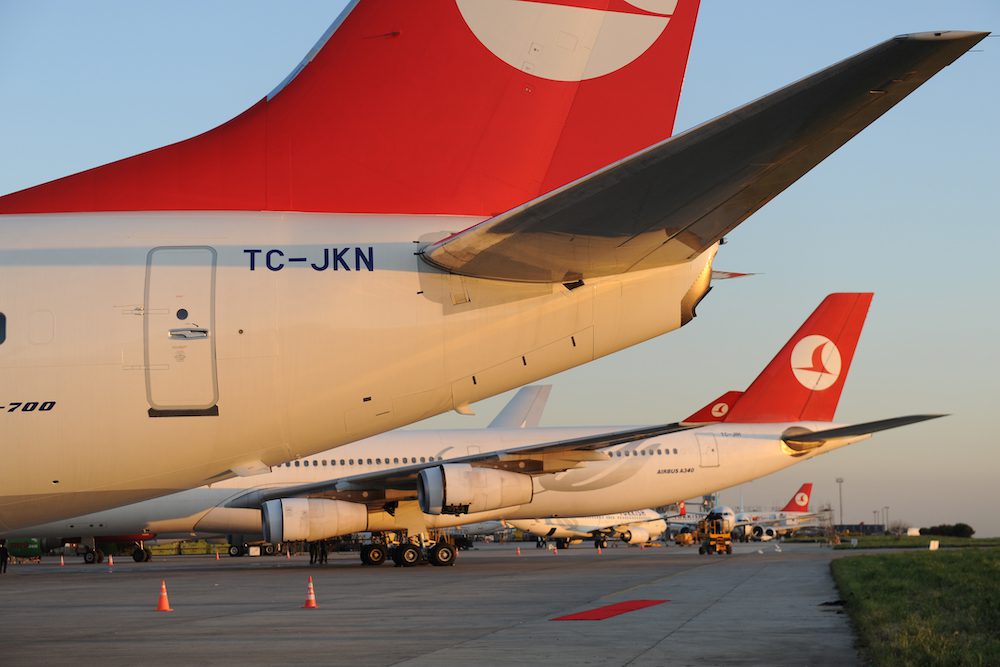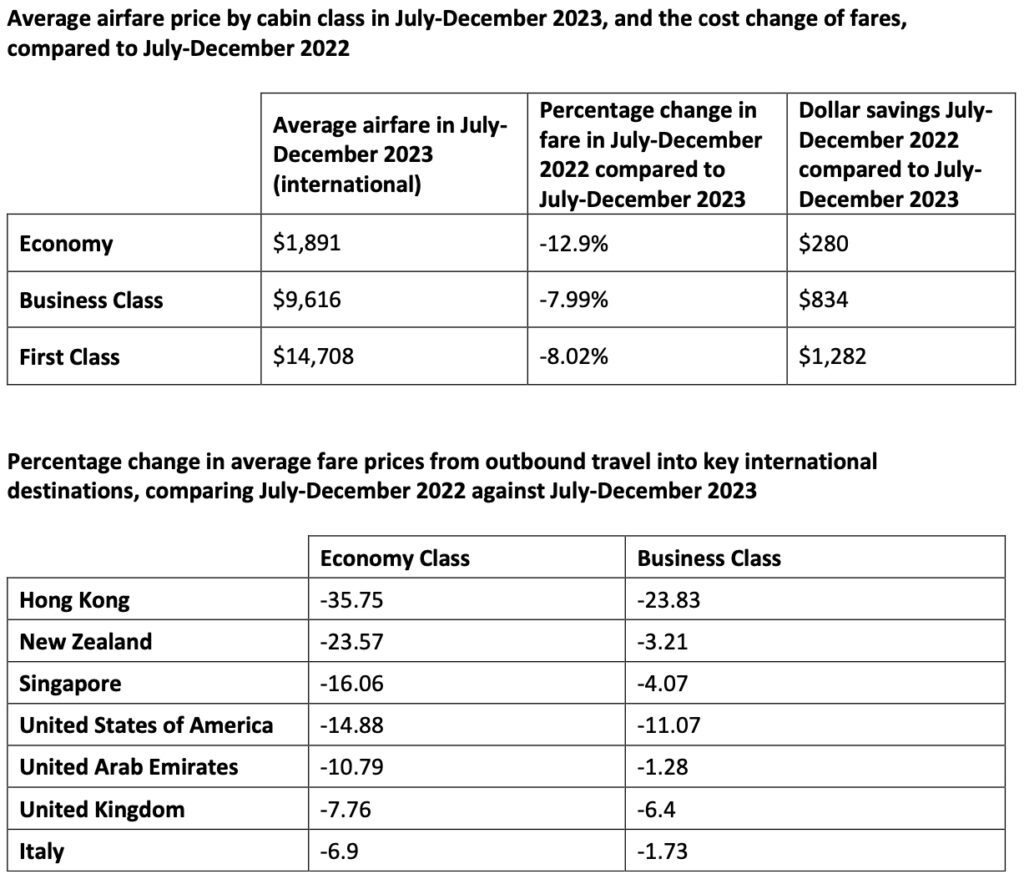In positive news for international travel, outbound airfares from Australia have taken a nosedive across all cabins, new data from Flight Centre’s corporate division has revealed.
According to the FCM Travel and Corporate Traveller data, the average international Economy airfare across all carriers fell by 12.9 per cent in the second half of 2023, compared to the same period the year before, for an average saving of $280 per ticket.
At the pointy end of planes, Business class fares decreased by 7.99 per cent (equal to $834 per ticket), while First class fares dropped by 8.02 per cent (equal to $1,282 per ticket) year-on-year over the same six-month period.
Melissa Elf, Managing Director for Flight Centre Corporate ANZ and COO of FCM Global, said the decrease in costs didn’t come as a surprise but would be a relief to travellers as well as directly help Aussie businesses.

“We’ve spent some time now assuring our corporate travellers that as airlines continue to recover, as capacity and competition comes back to the network, our travellers would start to see the cost of travel drop,” Elf said.
“We’re starting to see the signs of exactly that – and although we’ve still got some way to go yet in terms of getting back to full capacity, particularly internationally, there’s no doubt we’re beginning to feel the positive effects.”
Bonkers for Honkers
When it comes to the routes that have seen the biggest decline in airfares, Flight Centre Corporate found travel to Hong Kong to be the biggest winner, as Economy fares between Australia and HK fell a massive 35.75 per cent.
Hong Kong also experienced the biggest fall in Business class fares from Australia, decreasing by 23.83 per cent.
The drop in fares to Hong Kong was no doubt linked to the boost in capacity to HK following the government’s relaxation of entry requirements in early 2023.
Other routes to witness big drops in airfares in Economy class were New Zealand (-23.57 per cent), Singapore (-15.65 per cent) and the United States (-16.06 per cent).

After Hong Kong, Business airfares fell the most to the US (-11.07 per cent), Canada (-10.58 per cent) and Germany at (-8.67 per cent).
Meanwhile, the decrease in First class fares was led by travel to the US, which saw a 14.8 per cent price drop.
More flights = lower fares
Ms Elf said that the link between increased air capacity and a decrease in travel costs was clear.
“Our data shows that Southeast Asia is back to 107 per cent capacity on pre-2019 levels, and it’s clear that more flights and more competition has led to the significant drop in airfares that we’re seeing into countries like Hong Kong and Singapore,” she remarked.
“There’s more room for prices to drop to destinations like the Middle East, New Zealand and North America, for example, which are at pre-2019 capacity levels of 81 per cent, 86 per cent and 91 per cent respectively.
“There’s still restricted capacity on European flights and that’s the last frontier we need to conquer for customers to feel relief on routes to the likes of the United Kingdom, France and Italy – this is evidenced by softer airfare decreases to these destinations.
“With demand into Europe high, it’s critical more flights and competition are added, with the recent announcement like the granting of slots to Turkish Airlines being exactly what the industry needs for prices to drop even further.

Elf added that Flight Centre Corporate expects domestic capacity to reach pre-pandemic levels next month and international capacity to fully return by mid-2024.
Business travel crucial
She also stressed the importance of corporate travel for businesses – and that companies had recognised this.
“The fact that corporate travel has remained in high demand throughout a period of high prices shows it continues to be a necessity for business success and survival,” Elf stated.
“It also proves just how critical it is to have a travel management company on your side that can find you the best deal across a multitude of airlines, lock in the most convenient route, advise on the best time to travel and maximise travel benefits.
“Studies show that business travel correlates to economic growth, so with this welcome news, and as economists predict the flattening of inflation – particularly as we approach quarterly inflation results later this month – we can expect to see activity in corporate travel build.”
Last month, a separate study predicted that Business airfares from Australia would fall more than in any other region in 2024.







